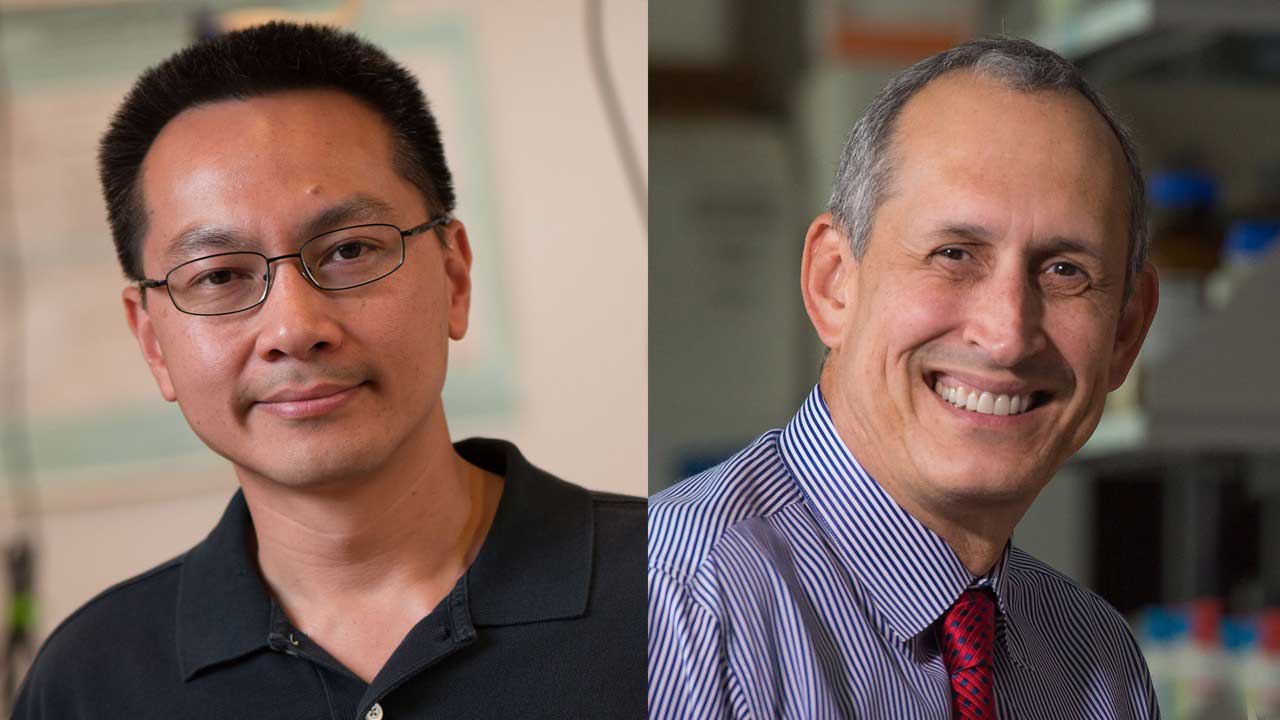The Greater Houston Section (GHS) of the American Chemical Society (ACS) has recognized Rice researchers Michael Wong and Pedro J.J. Alvarez, and their Shell collaborator Michael Reynolds, for their work on “produced water,” the byproduct of hydraulic fracturing (“fracking”).
The trio received a plaque recognizing their ACS GHS P3 Salute to Excellence Award (Partners for Progress and Prosperity) for the Shell-Rice partnership on novel well-produced water recycling research and education. Their article, “Fit-for-purpose treatment goals for produced waters in shale oil and gas fields,” published in the April issue of the journal Water Research, was a major outcome.
Wong is professor and chair of chemical and biomolecular engineering, and professor of chemistry, of civil and environmental engineering (CEE), and materials science and nanoengineering. Alvarez is the George R. Brown Professor of CEE and founding director of the NSF Engineering Research Center on Nanotechnology-Enabled Water Treatment. Reynolds is regional discipline lead for production chemistry at Shell.
Fracking requires 4 to 6 million gallons of “produced water” per well be pumped underground to stimulate release of hydrocarbons from shale or carbonate formations. The estimated volume of such water each year in the U.S. exceeds 150 billion gallons across the industry.
The Wong/Alvarez/Reynolds paper examines the quantity and composition of produced water, identifies contamination metrics useful in tracking water-quality improvement, and suggests possible treatments for enhancing cost-effective regulatory compliance, water recovery/reuse, and resource valorization.

